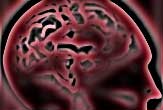Brain's Willpower Spot Found

Get the world’s most fascinating discoveries delivered straight to your inbox.
You are now subscribed
Your newsletter sign-up was successful
Want to add more newsletters?

Delivered Daily
Daily Newsletter
Sign up for the latest discoveries, groundbreaking research and fascinating breakthroughs that impact you and the wider world direct to your inbox.

Once a week
Life's Little Mysteries
Feed your curiosity with an exclusive mystery every week, solved with science and delivered direct to your inbox before it's seen anywhere else.

Once a week
How It Works
Sign up to our free science & technology newsletter for your weekly fix of fascinating articles, quick quizzes, amazing images, and more

Delivered daily
Space.com Newsletter
Breaking space news, the latest updates on rocket launches, skywatching events and more!

Once a month
Watch This Space
Sign up to our monthly entertainment newsletter to keep up with all our coverage of the latest sci-fi and space movies, tv shows, games and books.

Once a week
Night Sky This Week
Discover this week's must-see night sky events, moon phases, and stunning astrophotos. Sign up for our skywatching newsletter and explore the universe with us!
Join the club
Get full access to premium articles, exclusive features and a growing list of member rewards.
When healthy eaters choose broccoli over a Butterfinger, they use a small region in their brains that indulgers don't use. That bundle of cells is a clue to the biology of willpower, a new study finds. Like a wagging finger in our heads, the region admonishes us to consider long-term benefits over instant rewards when we make decisions. "This is the first time people have looked at the mechanism of self-control in people who are making real-life decisions," said Todd Hare, a Caltech neuroscientist who led the study. To zero in on the nodule that imposes willpower, Hare and his colleagues scanned the brains of 37 people who called themselves dieters. During the scans, the subjects pored over 50 photos of foods. They rated the foods according to taste and healthiness. Some foods, such as Wheat Thins and granola, earned strong "neutral" marks in both categories. For the final test, scientists showed each volunteer a food that they had labeled "neutral" and asked them to choose between it and each of 49 other foods. When the results were in, the scientists divided the dieters into two groups: those who had self-control and those who didn't. Those with self-control chose healthy foods over tasty foods. Those with no self-control opted for flavor. Every one of the volunteers used a part of their brains called the ventromedial prefrontal cortex, the scans revealed. It's a squiggly-shaped region behind the forehead. Those who exercised restraint, however, also used a part of the brain called the dorsolateral prefrontal cortex, a smaller lump of brain cells buried further back. It has been associated with working memory and meeting goals. The results were detailed in the May 1 issue of the journal Science. "It's unlikely that self-control is just one little nodule in the brain," cautioned Scott Huettel, neuroscience professor at Duke University who was not involved in the study. "There are undoubtedly many things that contribute to the way people make decisions." However, Huettel added, the regions Hare's team studied seemed to correspond to the decisions people make. The findings could lead to new treatments for over-eaters, drug addicts and smokers, among others. In fact, Hare's team is now developing brain-training exercises in an effort to help people improve their self-control. In the future, this kind of research could also bear on legal decisions, lending insight into how much responsibility we can claim for the quality of our decisions.
- 5 Ways to Beef Up Your Brain
- Mind Games: Sharpen Your Brain
- Greatest Mysteries: How Does the Brain Work?
Get the world’s most fascinating discoveries delivered straight to your inbox.
 Live Science Plus
Live Science Plus










